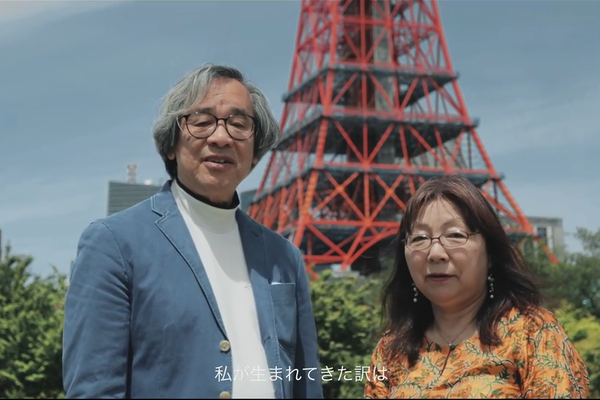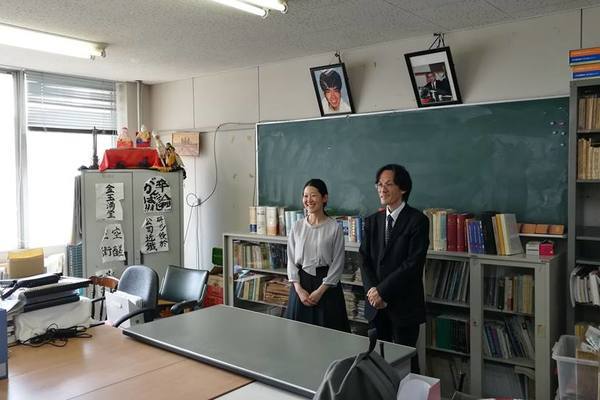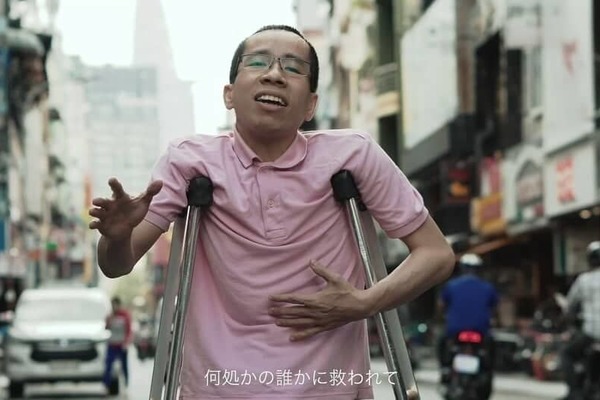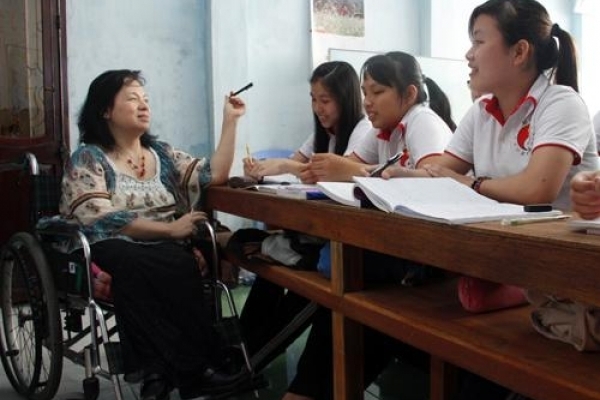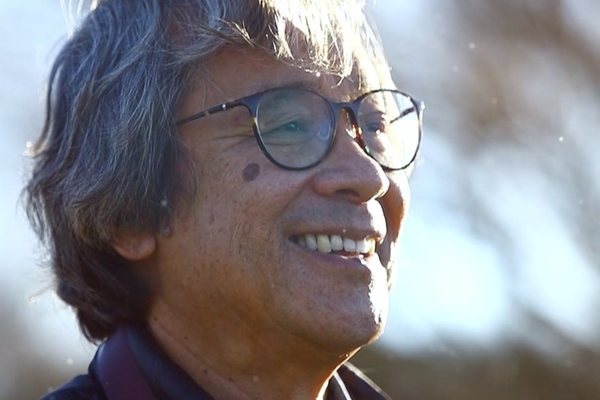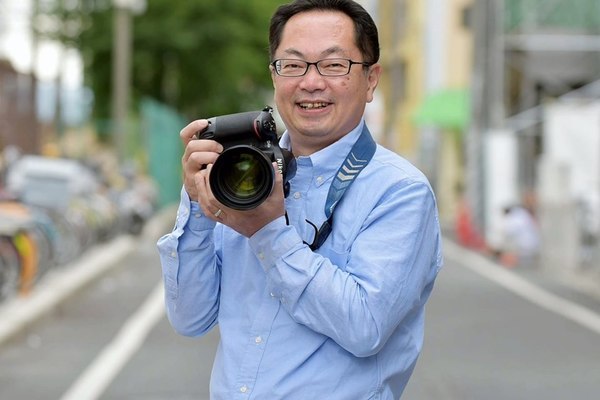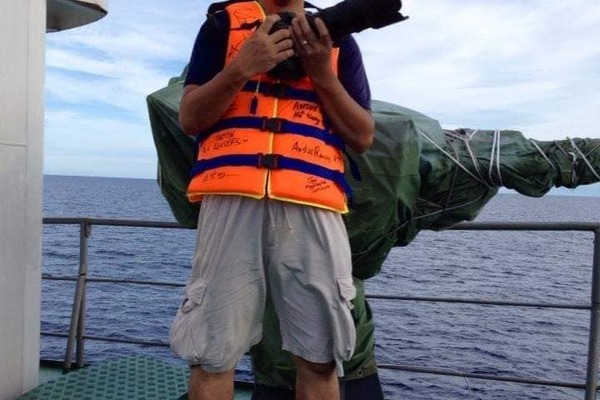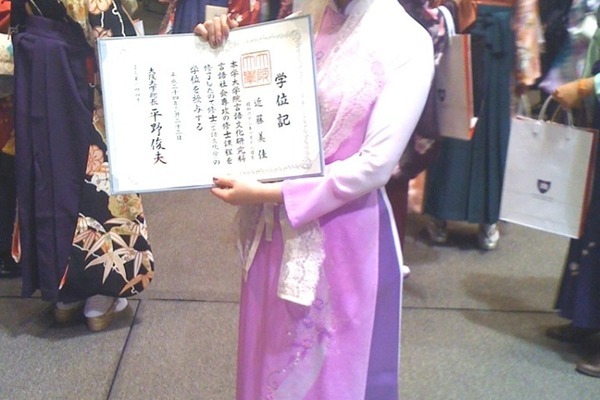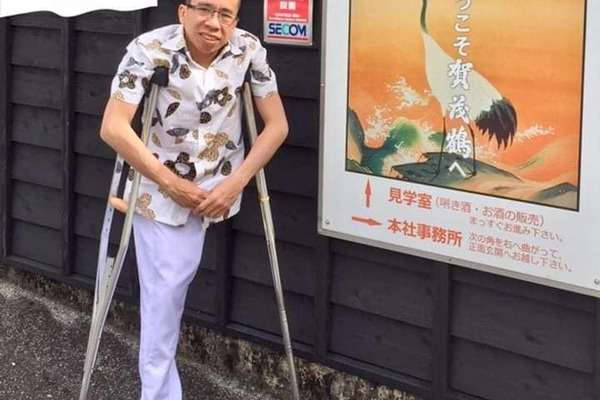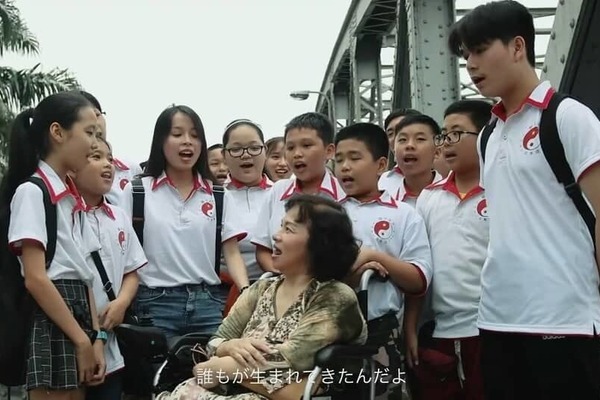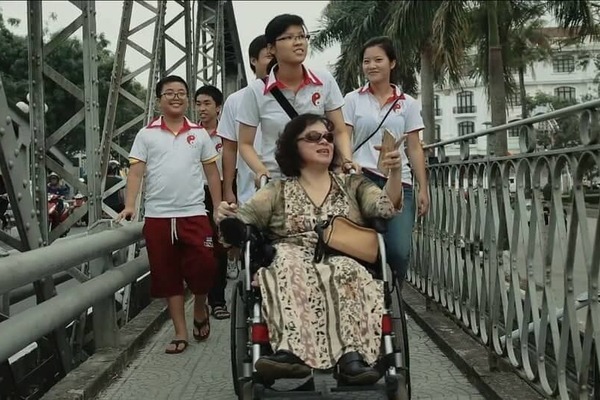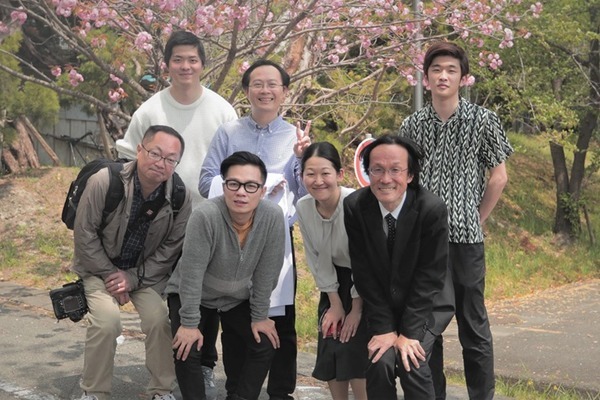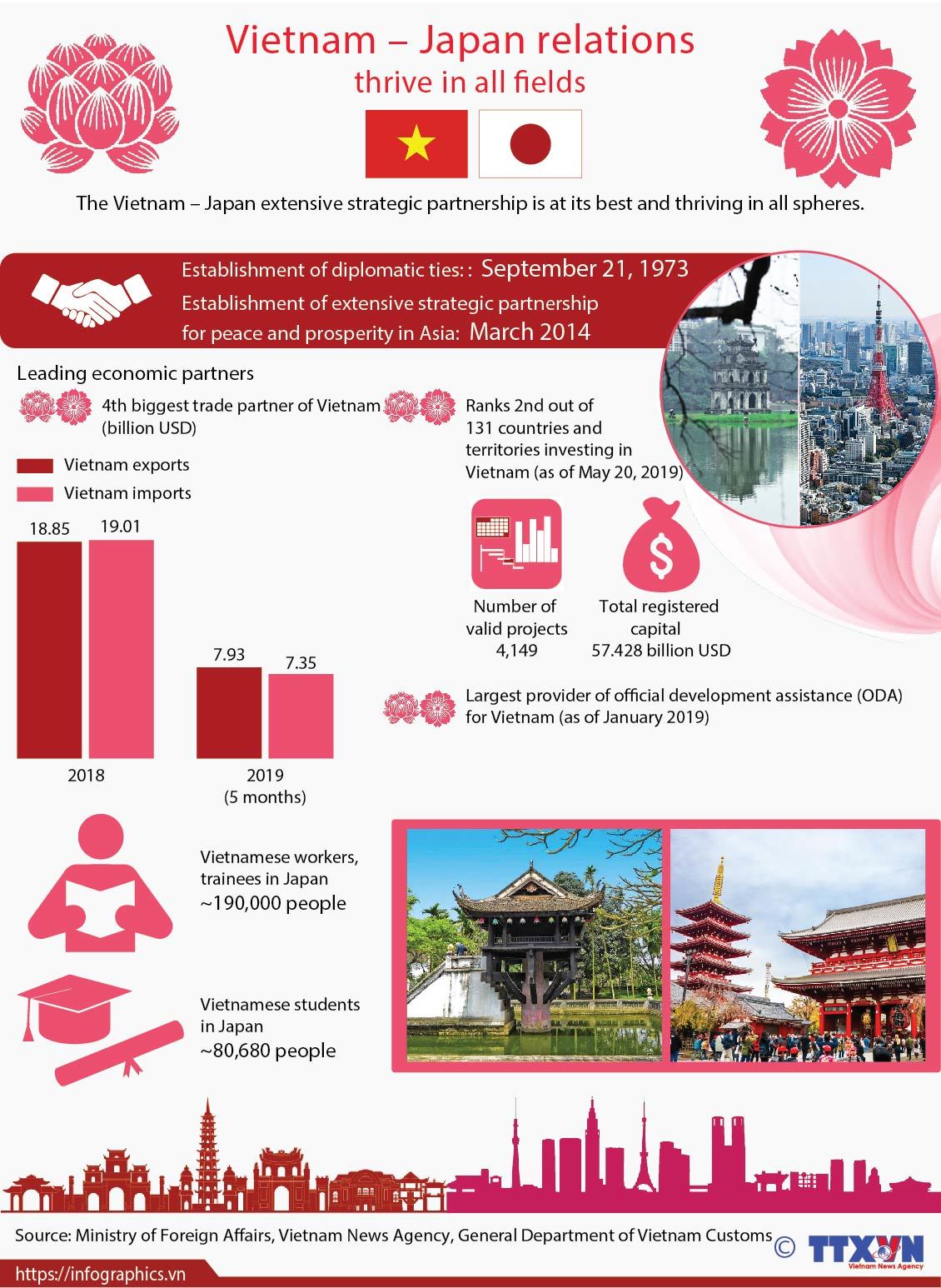Music video “Ly do toi sinh ra” (The reason I come to this life)"
Vietnamese singer Pham Hai Trieu has been living in Japan for nearly 20 years before he freshly decided to launch his first community music project titled “The reason I come to this life”, hoping to convey beautiful messages to Vietnamese and Japanese people.
The song, “Inochi No Riyuu” in Japanese, has become popular in the land of rising sun as it carries lively messages about life, family, friendship and love.
Covered by American singer Christ Hart, the song is favoured by Japanese language learners and cultural lovers.
Trieu said he really loves his brainchild which prompts him to translate the original into Vietnamese to spread happiness and kindness.
“Honestly, I’d never done a music project for this purpose before. But now, with the support of the Overseas Vietnamese Association in Japan, I have completed it for the first time. I’m very happy.
“Music knows no border, so I hope it can bring people closer together. I hope people can come together with affection and care like in the lyrics of the song.”
Trieu said his video was filmed in Tokyo and Osaka – where there is a large community of overseas Vietnamese – as well as Hanoi, Ho Chi Minh City and Hue – popular destinations in Vietnam.
Sharing his memories when making the video, Trieu said the best thing he received was the absolute support from all those involved. “Everyone was very enthusiastic, and it really moved me.”
Trieu expressed special acknowledgement to others without whose help, he said, he could not have finished the project, and added: “I hope more people will support the Overseas Vietnamese Association in Japan to run useful activities for the community.”
About his intentions to further strengthen the bonds among the Vietnamese community in Japan, Trieu said he wants to do more with the association.
“Apart from my ability to use music and language, I don’t think I have many others. So I will continue to do things in my strength.”
Trieu said he finds many children are good at singing, but unfortunately there are not many professional programmes to help them progress.
“I want to attract musically-gifted children to music charitable activities to raise money for support of those from difficult backgrounds.”
The singer has been interested in the Japanese culture since he was a child. He found his personality matches Japanese culture, a factor that has a role to play in his becoming a well-known singer of Vietnamese-Japanese bilingual songs.
Besides performing in events related to Vietnam and Japan, he often joins shows with Japanese musicians.
There are many ways to connect people but music is one of the most powerful to increase spiritual connections between individuals, said Tran Ngoc Phuc, Chairman of the Overseas Vietnamese Association in Japan, who was in Trieu’s video alongside his wife.
“For students who are studying abroad, music is really an effective medicine to help cure their homesickness.”
Phuc said he and Trieu had met quite often before but had not had deep conversations.
“However, after this project, we have become closer and want to use music to bring people closer together.”
He described the video as a big “surprise” for him because it was launched on August 24, right after his return to Japan from a working trip to Vietnam.
“I really want to thank my staff at the association. They knew I was busy, but still encouraged me to join the video with my wife.
“At first, it was very difficult for me to persuade my wife to lip-sync because she did not want to appear in public. She just wanted to support me behind the scenes in whatever I do.
“However, after watching the video, we found it so beautiful. We really love it!”
Mika Kondo, who teaches Vietnamese at Osaka University, said she has come to love Trieu’s soft signing voice and often makes his songs part of her Vietnamese classes.
The teacher recalled the surprise when she first learned about the project, and said she could not believe she would appear in the video.
Along with “The reason I come to this life”, other songs by Trieu will encourage more Vietnamese to learn Japanese and vice versa, she said, expressing her belief that foreign language learners will contribute to promoting mutual understanding and creating more wonderful stories for the Vietnam – Japan relations.
“This song carries a message about the importance of life and human connection.
“Sorrowful incidents happen in our modern society because people may take those things for granted. Therefore, I believe the reintroduction of this song holds a significant meaning."
“I hope people, either from Vietnam, Japan or anywhere else in the world, will watch this video to enjoy the melody and reflect on the meaning of the lyrics.”
Nguyen Duc, known as a symbol of Vietnam’s medical success and Vietnam – Japan cooperation, is another person appearing in Trieu’s music video.
He said it is hard to describe his feelings and he was moved to tears when he saw the completed version.
“The message of the song is like a miracle to me, which implies a heartfelt message about peace and development of the Vietnam - Japan relationship.
“I want to thank Trieu for his efforts as the song helps me look at life in a positive way and keep going forward.
“I believe that it will also motivate people who share similar circumstances with me,” said Duc, who was successfully separated from his conjoined twin Nguyen Viet with medical help from Japanese experts in 1988.
A Japanese language teacher, Tran Phuong Lien shared her thought with her students about the meaningful words of the song’s Japanese version during their lessons.
They were overjoyed when learning Trieu’s idea of the Vietnamese version and its video, believing it will provide a chance for them to practice Japanese.
“Taking part in the video along with many people learning the language in the country as well as the Vietnamese community in Japan would make them proud and boost their learning spirit.”
“I recognised many familiar faces in the video and believe that many souls are connected through each sentence of the song,” Lien said.
“The Vietnamese lyrics by Trieu breathes new life into the song and connect people in all walks of life to receive support, gain strength and offer help to others.”
More than 100 Vietnamese and Japanese people were brought together in Trieu’s music video.
Each individual appearing in Trieu’s video has their own reason to come to this life.
The 71-year-old Phuc, who has spent two-thirds of his life in Japan, said that before taking the position of Chairman of the Overseas Vietnamese Association in Japan in 2017, he did not want to communicate with the Vietnamese community because he was burying his head into research.
He said he could not use Vietnamese fluently because he has to use Japanese for most of his daily life contacts, which has made him familiar with the way of thinking of Japanese people.
Phuc added that some people told him he has forgotten his mother tongue and his grandchildren could not speak Vietnamese.
“However, I think everything lies in our heart and the important thing is that we still turn our hearts to the homeland and want to preserve our culture.”
After two years as the head of the association, Phuc said he has come back to the Vietnamese community and talked with youngsters.
“Hai Trieu at first did not know I was Vietnamese. He thought I was a Japanese person speaking Vietnamese.”
For the Vietnamese who are coming to Japan in an increasing number to study or work, Phuc said: “To gain a high position in Japan is very difficult. The most fundamental factor for people to succeed in Japan is securing public trust.”
He encouraged youngsters who study abroad to learn about the culture and morals of the host society rather than just focusing on academic matters. “The application of theory into reality is very important as it makes you become a more complete person,” Phuc said.
Murayama is known as a man with a great love to Vietnam.
He is hosting parties in three major cities of Vietnam, namely Hanoi, Da Nang and Ho Chi Minh City, from August 29 this year to celebrate his 50th trip to Vietnam.
The journalist said he first came to Vietnam in September 1998 with his teacher to attend a photo exhibition at the War Remnants Museum in Ho Chi Minh City.
“After that, I became passionate about Vietnam, and wanted to come back to Vietnam more frequently.
“Vietnam has changed, but I can’t believe that such changes have occurred so quickly, which, of course, has both good and bad sides.”
Following the changes in Vietnam over the past 20 years, Murayama said Vietnamese people are, too, gradually changing along with the time.
“I have recorded these changes with my camera.
“Previously when my mother fell ill because of a brain haemorrhage, she told me that I was living recklessly but my Vietnamese friends were still waiting for me. She said she could not live longer, so in this life, I should dedicate my whole heart to Vietnamese friends.
“This time, though it is just the 50th time and the 22nd year I’ve come to Vietnam, for me Vietnam is like my second home. I will do all my best to contribute to Vietnam.”
After more than two decades exposed to Vietnamese culture, Murayama said he realised that “I have fallen in love with Vietnam.”
“Some people might not understand me when I say that. Honestly, I have been ‘cheated’ in Vietnam, yet still I find Vietnamese people innocent, kind and generous.
“For me, Vietnam is like my lover. But if you love someone just for her beauty or money, that love will end soon. I have yet to know what I love Vietnam for, so I have come to Vietnam many times to seek the answer.
Murayama stressed that apart from Vietnam, he just loves his wife.
“I met Vietnam before my wife, so my wife understands my love for Vietnam. She often jokes that it’s better that I love Vietnam rather than have a relationship with another woman.”
Recalling his trip to Vietnam’s Hoang Sa (Paracel) archipelago in July 2014, which he labeled “unforgettable”, Murayama said he had an opportunity to embark on a Vietnamese patrol boat bound for the islands.
He said Vietnamese soldiers were very kind and brave.
“The image of Vietnamese soldiers protecting their country’s sovereignty is very beautiful in my eyes.
“I enjoyed meals with them and we talked about family and love.”
After the trip, Murayama opened a photo exhibition in Ho Chi Minh City to feature the beautiful moments of Hoang Sa soldiers and fishermen.
The journalist said he wants to go to Hoang Sa for a second time next year.
As a primary school student, Mika Kondo saw some girls in ao dai (Vietnam’s traditional dress) on TV.
“That image left a deep impression on me and strongly influenced my decision to study Vietnamese at university.”
Afterward, the Vietnamese language lecturer of Japan’s Osaka University said she was able to meet Vietnamese friends and enjoy the country’s cuisine.
“Eventually, my attachment to Vietnam became my passion.”
Kondo has come to Vietnam nearly 10 times, the first in February 2006.
She said she had travelled to many places from the north to the south of the country, naming the localities of Cao Bang, Sa Pa (Lao Cai), Thai Nguyen, Bac Giang, Hanoi, Hai Phong, Hue, Da Nang, Quang Binh, Nha Trang (Khanh Hoa), Ho Chi Minh City, Binh Duong, Ben Tre, Tay Ninh and My Tho (Tien Giang).
“I don’t like any particular place because they all have their own interesting things.
“But my most impressive trip was in 2010 to the southern province of Ben Tre, the hometown of writer Truong Vinh Ky, whose works I used as references for my graduation essay and master’s thesis. I was impressed by the beautiful scenery and hospitability of the people of the land of coconuts.
“My most recent visit to Vietnam was in Ho Chi Minh City in February this year. It was a short working trip. I visited some voluntary education agencies in the city and asked them to exchange with Vietnamese children in Japan to create a fun learning environment.”
Kondo said that besides teaching Vietnamese for students at Osaka University, she is also teaching the language for Vietnamese children born and raised in Japan.
She said with the help of science and technology, nowadays artificial intelligence can translate one language into others with high accuracy. “However, only humans are capable of using languages to express and understand human feelings.”
Kondo said what she loves most about Vietnamese people is they are compassionate and forgiving.
Goodwill ambassador for peace in Japan Nguyen Duc (Photo courtesy of Nguyen Duc)" data-alignment="center">
In 1988, Vietnam’s first surgery to separate a pair of conjoined twins took place in Ho Chi Minh City with the support of Japanese experts and medical technology.
After the 17-hour surgery, the older brother Nguyen Viet suffered a brain damage while his younger brother Nguyen Duc gradually recovered. Viet passed away in 2007 due to pneumonia and kidney failure.
Living with one leg and organs he once shared with his brother, Duc managed to overcome his challenges and earned a job at the Ho Chi Minh City-based Tu Du Hospital. He currently resides in the city with his wife and twin children.
Duc said he considers Japan his second home.
“Japan is not only a beautiful country but also a nation of great culture. I love the working style of Japanese people.
“I fell in love with Japan at first sight and since I received medical treatment in Kobe for one year and six months.
“That moment is still fresh in my mind and I always consider it the best memory in my life though I have travelled to Japan 49 times.”
Over the past 20 years, Duc has been serving as goodwill ambassador for peace in Japan.
“As a member of the Vietnam-Japan Friendship Association – Ho Chi Minh City chapter, I’ve always tried my best to promote relations between Vietnam and Japan, from culture and external affairs to economy.”
With his non-profit organisation which was established in 2012, Duc has organised various events to foster bilateral people-to-people exchanges.
“I’m nurturing a lot of plans to foster the bilateral relations because I want to repay the kindness and support of the people who gave me the second life.”
“My love for Japan is strengthened thanks to a song which made me understand the heart of Japanese people. They condemned meaningless wars and gave us great support in difficult times,” said Lien.
The teacher cited the story of Phan Boi Chau, a Vietnamese nationalist figure and pioneer of the Dong Du movement in early 20th century that encouraged young Vietnamese to go east to study and seek ways to save the nation.
Chau has received whole-hearted support from Japanese doctor Sakitaro Asaba and people in Fukuroi of Shizuoka prefecture.
“I am deeply in love with Japan from just a song, and after taking part in various activities over time, I am referred to as a bridge linking Vietnamese-Japan culture exchanges and serves as a member of the Vietnam-Japan Friendship Association – Thua Thien-Hue chapter,” the teacher added.
Lien’s Japanese language class opened in 1996 and has gradually attracted more students.
In addition, many Japanese who travel to Vietnam to live and do business come to her class to learn Vietnamese as well as the culture of Hue, the capital of the last feudal dynasty in Vietnam, and Vietnam as a whole.
“The popularisation of Vietnamese and Japanese languages through the two countries’ songs is wonderful. I believe that Trieu and his work are bringing people of the two nations closer.
“When my daughter (who is staying and working in Tokyo), my students and I myself travel to Japan or host friends from the country, we would first introduce the Vietnam’s traditional dishes and destinations to our guests, and teach them simple Vietnamese words.”
By doing so, Japanese people will come to love Thua Thien-Hue and Vietnam and may want to settle and get married with local people to be immersed in Vietnamese culture, she said.
“So I think extravagant things are unnecessary, and I often remind my daughter and students that when we truly love our country, our homeland, every song, every landscape, every dish, the sentiments we harbour will inspire our international and Japanese friends.”
For a long time, Japanese friends have passionately adored the song “Diem xua” by late composer Trinh Cong Son, and the Japanese version “Utsukushii Mukashi”.
“I think that Son’s music has connected the hearts of the Japanese with our Vietnamese people.”
“If many singers, musicians, writers, culture experts, diplomats, language teachers and learners also share the enthusiasm, how beautiful this world will be!” she said.
Trust key to connecting Vietnamese,Japanese peoples">
Tran Ngoc Phuc said he believes trust will be the key to connecting Vietnamese and Japanese people.
“When we have trust, we will feel secure to come together. In the other way, if we lose people’s trust, it would be difficult to get back.
“As Chairman of the association, I should be a community-oriented person first and put aside my individual benefits so as to gain the trust of people.”
Sharing the association’s future activities to connect Vietnamese people in Japan, Phuc said he wants to work with mass media to create a television channel for Vietnamese in Japan.
“In Shibuya, some people open Vietnamese classes. I find this very interesting. But it is a geographical matter that not all people can come to the classes.
“So I think the idea of creating a Vietnamese television channel is the best to teach Vietnamese language and promote Vietnamese culture for the next generations.”
Pham Hai Trieu shares similar goals, and bringing together more than 100 Vietnamese and Japanese people in his music video was a way to bring the two communities together.
“Through my music video, I want to build a strong Vietnamese community in Japan,” Trieu said.-VNA
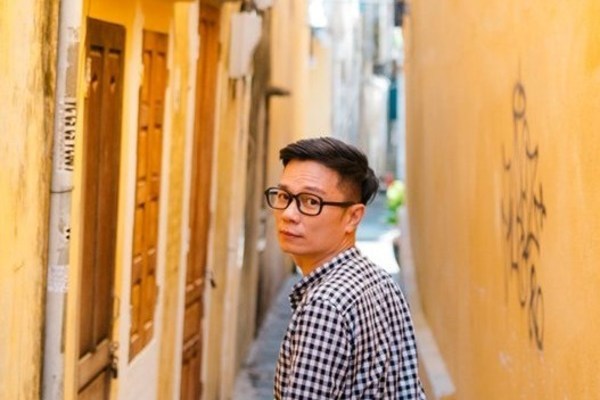 |
|
Pham Hai Trieu in Hoi An ancient city of central Quang Nam province for the shooting of the music video (Photo courtesy of Pham Hai Trieu)
Tran Ngoc Phuc and his wife in the music video, with the Tokyo Tower in the background (Screenshot Photo)
Mika Kondo (L) and Professor Masaaki Shimizu, head of the Vietnamese Department at Osaka University, take part in the music video (Photo from Pham Hai Trieu's Facebook)
Goodwill ambassador for peace Nguyen Duc poses for the music video (Screenshot Photo)
Disabled Japanese language teacher Tran Phuong Lien and her students during class (Photo: Thua Thien-Hue Department of Information and Communications)
Tran Ngoc Phuc, Chairman of the Overseas Vietnamese Association in Japan (Photo courtesy of Tran Ngoc Phuc)
Freelance journalist Yasufumi Murayama (Photo courtesy of Murayama)
Murayama in a life-jacket with autographs of his companions in his trip to Vietnam’s Hoang Sa (Paracel) archipelago (Photo courtesy of Murayama)
Vietnamese language teacher Mika Kondo in Vietnamese ao dai (Photo courtesy of Kondo)
Goodwill ambassador for peace in Japan Nguyen Duc (Photo courtesy of Nguyen Duc)
Tran Phuong Lien and her students in Pham Hai Trieu's video (Screenshot Photo)
Tran Phuong Lien and her students in Pham Hai Trieu's video (Screenshot Photo)
Pham Hai Trieu (front row, second from left) and his friends in Japan who are in the music video pose for a group photo (Photo courtesy of the singer)
|
Linh Ha/Tra My

Japanese researcher helps Vietnam tackle AO/dioxin-related health issues
A Japanese researcher has just announced a project on training Vietnamese health workers in addressing problems related to Agent Orange (AO)/dioxin chemical that was sprayed on the country during the war.
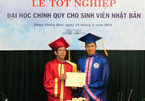
Japanese expat falls for Vietnamese literature
Many foreigners profiled in this column consider Vietnam their second home because they have fallen for the landscape or the locals’ hospitality, but Kawarai Yushi, a Japanese expat based in Thua Thien – Hue, has fallen for Vietnamese literature.
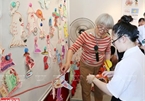
A Japanese friend of Vietnamese children
Artist Nagano Hideko, famous Japanese author of children’s picture books, is loved by Vietnamese children for her interesting picture books and her talks full of laughter.
 Vietnamese singer Pham Hai Trieu has been living in Japan for nearly 20 years before he freshly decided to launch his first community music project titled
Vietnamese singer Pham Hai Trieu has been living in Japan for nearly 20 years before he freshly decided to launch his first community music project titled